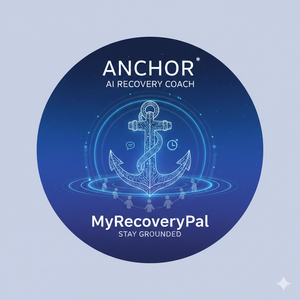
When I stepped into my first meeting, I thought: “Once I prove I don’t have a problem, I’ll go right back to my old life.” Seven years sober has taught me otherwise. Recovery isn’t a box you check — it’s an ever-evolving journey, full of unexpected turns. Along the way I confronted myths that nearly derailed me, and discovered truths backed by research and real-world experience. Here’s what you need to know about life after addiction — and how to thrive beyond mere abstinence.
Myth #1: Once You’re Sober, It’s Smooth Sailing
Truth: Recovery is an ongoing, ever-changing process.
That “pink cloud” in early sobriety gave me false confidence — until cravings and stress crept back. Research finds that nearly 60% of people in recovery experience at least one relapse in their first year. Rather than a failure, a setback signals that you need new strategies and deeper self-awareness.
Reality Check & Action:
- Expand Your Toolbox: Beyond meetings and therapy, explore mindfulness apps, exercise routines, creative hobbies, or peer-led support groups.
- Regular Check-Ins: Schedule reviews at 3, 6, and 12 months to reassess goals, update coping methods, and reinforce your support network.
Myth #2: Sobriety Is Just About Quitting Substances
Truth: It’s about building a whole new way of life.
Stopping drinking uncovered a torrent of buried emotions I’d numbed for years. True recovery reshapes your habits, relationships, career — your very sense of joy.
Reality Check & Action:
- Emotional Literacy: Twice daily, pause and label what you feel — anger, boredom, loneliness. Naming emotions reduces their power.
- Healthy Replacements: Swap old rituals — happy-hour drinks — for nourishing ones like meditation, journaling, or a church small group that shares your sober-living values.
Myth #3: You’ll Never Feel “Normal” Again
Truth: New normals emerge — and they can be richer than before.
I once thought sobriety meant missing out. Instead, I learned to live sober in social settings by surrounding myself with like-minded people — volunteering at my church, joining hiking clubs, and connecting with peers who valued alcohol-free fun. Peer recovery support has been shown to reduce relapse rates and increase life satisfaction by over 50%.
Reality Check & Action:
- Curate Your Circle: Seek out faith groups, alumni clubs, or online communities where sobriety is a shared value.
- Engage Fully: Attend events with clear heads — picnics, service projects, book clubs — to experience joy without compromise.
Myth #4: A Relapse Means Total Failure
Truth: A slip is feedback, not a full stop.
If a relapse occurs, it doesn’t erase the progress you’ve made. Addiction is a chronic condition; relapse often reflects a temporary lapse in coping strategies or support, not a moral flaw. Studies link strong recovery capital — social support, resilience, access to services — with lower relapse rates.
Reality Check & Action:
- Have a Relapse Plan: Prepare a clear response — call your sponsor, revisit your recovery roadmap, and attend an extra meeting or session.
- Learn and Adapt: When you face a setback, analyze the triggers and gaps in your plan. Use that insight to strengthen your toolbox rather than shaming yourself.
Myth #5: You Have to Change Everything at Once
Truth: Small, consistent steps add up to a new life and identity.
Early in recovery I tried overhauling my entire world in a single weekend — new diet, new routines, new friends. Burnout followed. Sustainable change is built one choice at a time. Each micro-habit — drinking an extra glass of water, going for a five-minute walk, sending a check-in text — may seem minor in isolation, but over weeks and months they reshape your brain’s wiring and your self-image. Neuroscience shows that habit stacking dramatically increases the chance of long-term success.
Reality Check & Action:
- Micro-Commitments: Choose one simple morning ritual — one gratitude note, one minute of deep breathing, or one sponsor text.
- Celebrate Tiny Wins: Did you resist a craving for an hour? Give yourself credit. Recognizing small victories fuels the momentum for bigger strides.
Embracing an Ever-Evolving Journey
Life after addiction is not a fixed destination but a dynamic path. Myths — smooth sailing, simple fixes, total failure — can trip you up when reality differs. But by accepting the truths — ongoing growth, whole-life transformation, resilience through setbacks, and the power of small steps — you build a recovery that’s real, robust, and uniquely yours.
Remember: every sober choice, no matter how small, propels you forward. Keep leaning into challenges, anchoring in responsibility, and connecting with kindred spirits. That’s how you craft a life of lasting freedom and joy.
🙏 If this resonated, please 👏 clap, share your experiences in the comments, and hit Follow to stay connected with Normalize Sobriety!


Comments (0)
Login to leave a comment.
No comments yet. Be the first to share your thoughts!